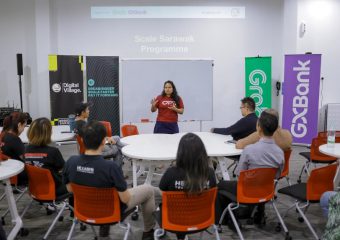Despite today’s demand for a workforce with a background in science, technology, engineering and mathematics (STEM), some experts and industry players argue that the humanities are now more important than ever in the digital age.
The humanities are academic disciplines that focus on aspects of human society and culture, with the most common ones being languages, literature, law, art, music, history, philosophy and religion.
Unlike the empirical approaches of the natural sciences, the humanities utilise qualitative methods that are essentially analytical, critical or speculative, on the basis that human beings have different ways of seeing and perceiving.
Those who study the humanities are usually interested in the social, moral and aesthetic values that define the diversity and complexity of various human cultures.
They also tend to have more than one field of interest, which gives them the flexibility to pursue wide-ranging career opportunities, such as media, education, business and politics.
Perhaps the greatest advantage of studying the humanities is the chance to learn to explore, analyse and gain insights on abstract problems by thinking, reasoning and asking questions critically and creatively.
It is this advantage from the humanities that the workforce of the digital age should consider, even if they pursue an education and career in STEM.
In fact, to further enhance your employability and enrich your viewpoint as a professional or entrepreneur in the digital age, you should include subjects within the humanities in your lifelong learning.
This is because learning the humanities allows you to develop the knowledge and skills that are transferable and indispensable across technical and non-technical fields, such as critical thinking, problem solving, creativity, emotional intelligence and adaptability.
The humanities also enable you to nurture a mindset befitting of a global citizen: as an individual who has the open mind and empathy to question, reflect, and understand a global issue from different points-of-view.
These are the knowledge, skills and mindset that employers in the digital age are searching for in their potential employees, especially organisations that are in need of ideas to create products or services catering to their customer needs.
To put this into perspective, many of the job openings from tech companies today are non-technical, including marketers, designers, project managers, lawyers and human resource specialists.
Simply put, the humanities are as valuable as the sciences in the digital age. As co-founder of Bluewolf Eric Berridge said it in his TED Talk on the importance of hiring humanities graduates for tech companies:
“While the sciences teach us how to build things, it’s the humanities that teach us what to build and why to build them. And they’re equally as important, and they’re just as hard.”
This is a weekly column by SarawakYES! – an initiative driven by Faradale Media-M Sdn Bhd and supported by Angkatan Zaman Mansang (AZAM) Sarawak – to provide advice and stories on the topics of education and careers to support Sarawakians seeking to achieve their dreams. Join us on Facebook, Twitter, Instagram and YouTube.
First published in the Borneo Post in print on 1st August 2020.
Photo by Abby Chung from Pexels.




